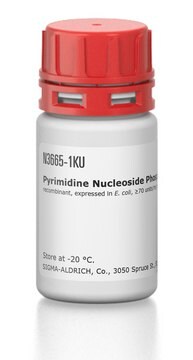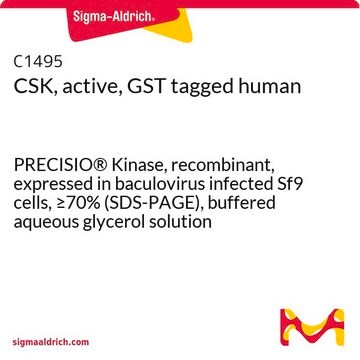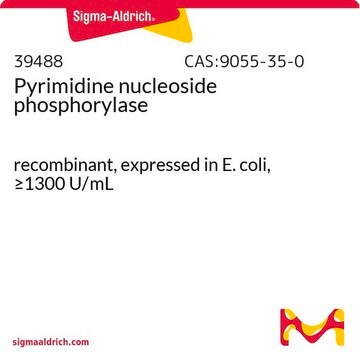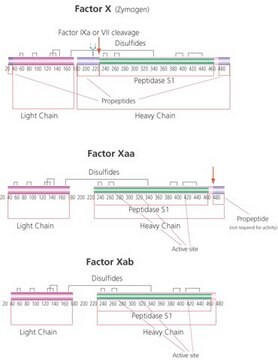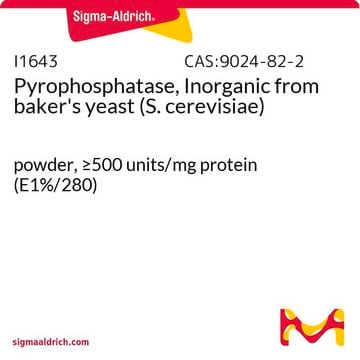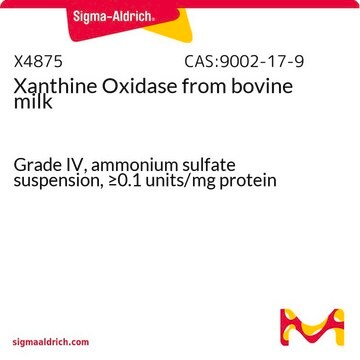540221
Purine Nucleoside Phosphorylase, Human, Recombinant, E. coli
Synonym(s):
PNP
Sign Into View Organizational & Contract Pricing
All Photos(1)
About This Item
UNSPSC Code:
12352202
NACRES:
NA.42
Recommended Products
recombinant
expressed in E. coli
Quality Level
form
liquid
specific activity
≥25 units/mg protein
manufacturer/tradename
Calbiochem®
shipped in
dry ice
storage temp.
−20°C
General description
Recombinant, human purine nucleotide phosphorylase expressed in E. coli without tags. Purine nucleoside phosphorylase catalyzes the phosphorlysis of N-ribosidic bonds of purine nucleosides and deoxynucleosides in a reversible reaction. Human PNP is a target for therapeutic T-cell immune response intervention. Useful in the detection of inorganic phosphate from biochemical reactions.
Warning
Toxicity: Standard Handling (A)
Unit Definition
One unit is defined as the amount of enzyme that will convert 1 µmol of MESG and 1 µmol of Pi into 1 µmol of 2-amino-6-mercapto-7-methylpurine and 1 µmol of ribose phosphate in 1 min at 25°C, pH 7.6.
Physical form
In 50 mM Tris-HCl, pH 7.6.
Analysis Note
Single band by SDS-PAGE
Other Notes
Filgueira de Azevedo, W.Jr., et al. 2003. Biochem. Biophys. Res. Commun.309, 917.
Silva, R.G., et al. 2003. Protein Expr. Purif.27, 158.
Silva, R.G., et al. 2003. Protein Expr. Purif.27, 158.
Legal Information
CALBIOCHEM is a registered trademark of Merck KGaA, Darmstadt, Germany
Storage Class
12 - Non Combustible Liquids
wgk_germany
WGK 1
flash_point_f
Not applicable
flash_point_c
Not applicable
Certificates of Analysis (COA)
Search for Certificates of Analysis (COA) by entering the products Lot/Batch Number. Lot and Batch Numbers can be found on a product’s label following the words ‘Lot’ or ‘Batch’.
Already Own This Product?
Find documentation for the products that you have recently purchased in the Document Library.
Customers Also Viewed
Roman S Iwasaki et al.
Nucleic acids research, 48(17), e101-e101 (2020-08-17)
Recent efforts in biological engineering have made detection of nucleic acids in samples more rapid, inexpensive and sensitive using CRISPR-based approaches. We expand one of these Cas13a-based methods to detect small molecules in a one-batch assay. Using SHERLOCK-based profiling of
Our team of scientists has experience in all areas of research including Life Science, Material Science, Chemical Synthesis, Chromatography, Analytical and many others.
Contact Technical Service
